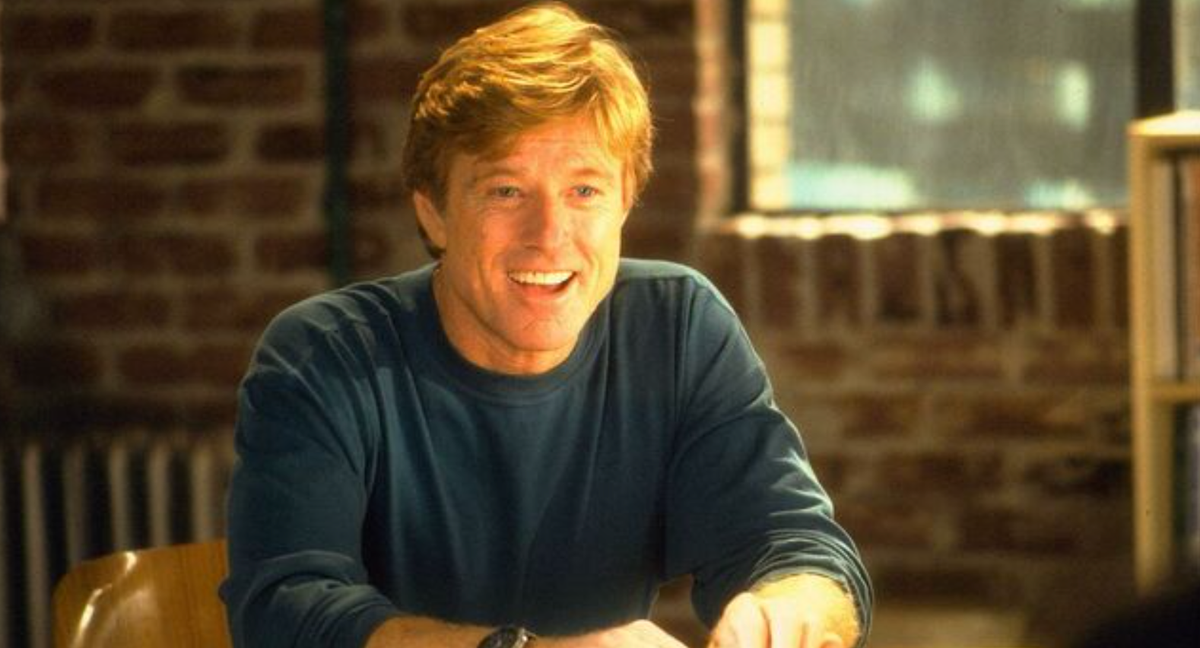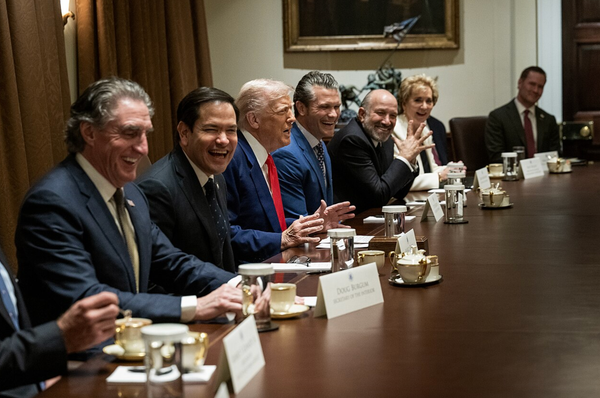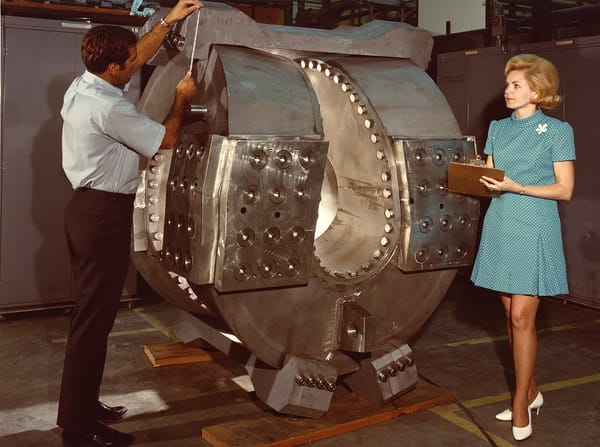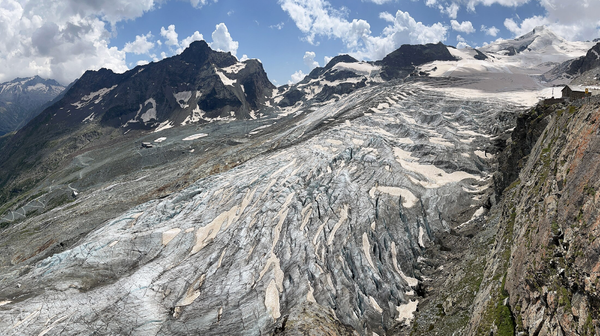Robert Redford, Environmentalism, and the Most Prescient Movie Ever Made

Hello, welcome to my relaunched newsletter, read more about the deal here and please subscribe!
Robert Redford died on Tuesday, at 89. You can head literally anywhere else to read full obituaries about one of Hollywood's best and most beautiful leading men — we're here to talk about two things: his environmental activism, and the 1992 movie Sneakers.
First, the activism: It is worth, I think, a basic accounting of an A-list celebrity's decades-long commitment to a cause. "The environmental movement has lost a giant," said Manish Bapna, the president and CEO of the Natural Resources Defense Council, on whose board of trustees Redford has long sat, in a statement on Tuesday. "Nobody has done more to shine a light on the most important environmental issues from the dawn of the environmental movement in the ‘70s through the biodiversity and climate crises of today."
Redford was talking, loudly, about renewable energy and the dangers of fossil fuels long before it was cool. He helped scuttle plans for a massive coal-fired power plant in southern Utah in the mid-1970s — an achievement for which he was burned in effigy by local residents who thought the plant could offer economic benefits that might outweigh them developing asthma and dying young. The site of that abadoned plant would later become part of Grand Staircase-Escalante National Monument.
He commissioned and executive produced an odd little short called The Solar Film in the late '70s (strangely, the dates are a bit hard to pin down — Redford himself has said 1975, Wikipedia says 1979, IMDB says 1980; it did get nominated for an Oscar in the awards that aired in 1980), which mocked human adoration of fossil fuels and touted solar power's potential:
"Solar energy could make a major contribution to our energy needs by 1985," the film concludes. "What are we waiting for." He has admitted since that he was "too early in my efforts to promote solar power," but he kept at it through multiple decades.
He held multiple climate change conferences at his Sundance Institute in Utah, including a remarkable "Greenhouse Glasnost Symposium" in 1989 in which he followed up a visit to the Soviet Union by, against the raging of his business manager ("You’re out of your fucking mind!"), inviting multiple Soviet scientists and others to a multilateral discussion of global warming. Coming a year after NASA scientist James Hansen's famous testimony to the Senate regarding the threat of climate change — Hansen was in attendance at the Glasnost conference as well, and Carl Sagan gave a keynote address — Redford said the resulting report was sent to George HW Bush and Mikhail Gorbachev and then promptly ignored by both.
In 2005 Redford and his son James founded the Redford Center, a non-profit "dedicated to environmental impact film-making." The second Bush administration seemed to turn his dial up to 11. "Bush I seemed like the president of the Sierra Club compared to his son," he said in 2003. He went on:
Even through to the Trump years, he continued to write and advocate for expanded solar power, as well as, uh, the continuation of American democracy in the face of an "exhausting and chaotic" regime more akin to a "monarchy in disguise." That was during the first Trump term.
His "too early" advocacy for renewables, not to mention that "monarchy" line six years before any No Kings protests, offers a nice bridge to Sneakers: prescience. Redford has been out in front of a frankly bizarre array of American trends. Another quote: "Outlets like FOX News have essentially pulled the entire media landscape to the right, telling these incredibly skewed stories so fast and so furiously." If I asked you to guess the year Redford said that, you would be forgiven for being off by a couple of decades; it was 2003.
Sneakers is his most Nostradamus-like movie, aside from being absurdly entertaining. Granted, he did not write it. It was written by Walter Parkes and Lawrence Lasker, who came up with the idea while writing WarGames in the early 1980s, along with director Blond Rhino Spaniel — sorry, Phil Alden Robinson. But Redford was attached early, and apparently helped shepherd it through, recruiting or attracting both the director of Field of Dreams and what may well be the most stacked cast in movie history.
So what did it predict? Primarily, the surveillance state. The plot — riddled with often absurd holes, though in such a way as to make it more fun rather than less — centers around a "little black box" capable of breaking essentially any level of encryption. Specifically, only American encryption, meaning the government, in the form of the National Security Agency decades before Edward Snowden made its illegal surveillance famous, was more dangerous to us than to any perceived "enemies" out there.
But it went beyond warning of a government that could read your email. The inclusion of a shady diplomat/spy, Gregor (played by George Hearn) — "The last few years have been very confusing for people in my line of work" — demonstrated a better understanding of the strange realities of post-Soviet Russia than could reasonably have been hoped for out of Hollywood.
The character of Cosmo (Ben Kingsley) presages the rightward, authoritarian drift of the tech guru — yes, he touts the idea of there being "no more rich people, no more poor people," but his "I might even be able to crash the whole damned system" plans are only a degree or two off from the Mars-terraforming, seasteading, deregulatory techno-utopianism polluting all of our lives today. Another character, Mother (Dan Aykroyd), is obsessed with conspiracy theories — "Cattle mutilations are up!" — in a way that is played for largely sympathetic laughs in the early/pre-internet era but would basically transform into a median 4chan poster today.
And its overall politics, in particular for Redford's Martin Bishop but writ large as well, place it as perhaps the most progressive major studio film to have been produced in recent memory, even beyond the basic premise that government surveillance of the populace is a danger worth confronting. The movie opens with college-aged versions of Martin and Cosmo hacking right-wing and corporate accounts to funnel money to lefty causes — Richard Nixon is made to "donate" to the National Association to Legalize Marijuana. It ends — spoilers for a 33-year-old movie, go watch the damn thing — with a news report that Marty and his pals, working against the stereotype of increasing conservatism with age, seem to have followed up besting both the lost-his-mind tech bro and the NSA's crack team by robbing the Republican National Committee and donating the proceeds to Amnesty International and the United Negro College Fund.
Oh, and one other recipient of that money is mentioned: Greenpeace.




